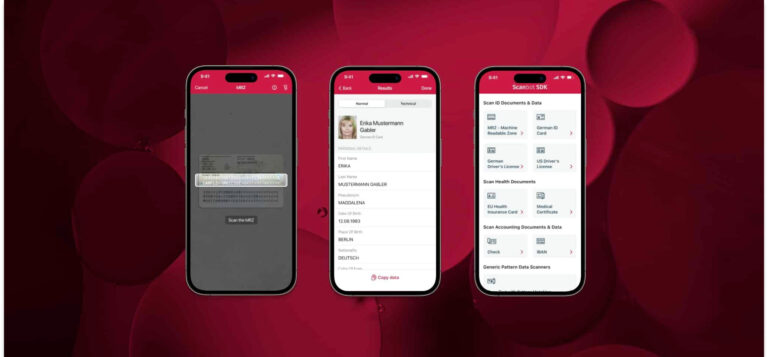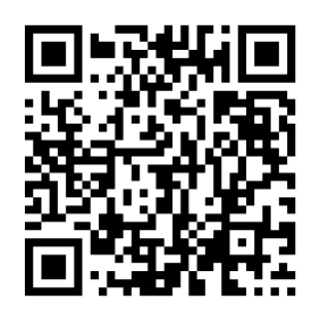According to CARFAX Canada, criminal investigations into VIN cloning have increased by 63% from 2019 to 2023. Both awareness and prevention measures are needed to fight this crime trend. In this article, we explore what VIN cloning is and how to identify counterfeit VINs.
What is a VIN?
Every vehicle manufactured in the U.S. after 1981 has one: a Vehicle Identification Number (VIN). It’s a unique 17-character alphanumeric code that acts as a vehicle’s fingerprint. VINs also contain details about the origin and specifications of the vehicle. They are typically located on the driver’s side of the dashboard, near the windshield. Most recent models also have a VIN barcode, typically on a sticker inside the driver’s door.
VINs are crucial for tracking recalls, registrations, and insurance coverage, making them invaluable for vehicle and ownership verification. They are tightly linked with the history of the vehicle. Just as people have ID numbers to identify themselves, vehicles have a VIN.
What is VIN cloning?
VIN cloning is essentially identity theft for vehicles. It is a form of fraud where scammers copy the VIN from a legally registered vehicle and put it on a salvaged or stolen vehicle.
A VIN number scam usually begins with stealing a vehicle or buying a salvaged one for a pittance. Next, the scammers identify a legally registered vehicle that matches their acquired car. To make it harder to spot the fraud, they’ll often pick one from a different region. They then copy the VIN from the legitimate vehicle to the stolen or salvaged vehicle.
This lets the fraudsters sell their vehicles with a supposedly clean history. The result is two different cars driving around with the same VIN – which spells trouble.
The threat of counterfeit VINs for buyers
Vehicles with a cloned VIN are above all dangerous. They often start out as wrecks, meaning their frames and safety systems can be compromised. Replacement parts are typically salvaged or stolen as well. Essential components like airbags, brakes, and steering may be incorrectly installed or faulty, heightening the risk of accidents and serious harm.
Beyond these safety risks, buyers face a host of other potential consequences.
The first is financial loss when the vehicle’s true origin is discovered. For one, authorities may simply confiscate the cloned car. For another, insurers will likely refuse to pay out on any claims.
Additionally, buyers might be held responsible for any outstanding loans associated with the legitimate car whose VIN was cloned. This could happen because the financial institution may still have a claim on the original vehicle tied to that VIN.
The wider impact of car cloning
VIN cloning also presents a serious challenge for other parties involved.
Law enforcement agencies struggle to trace stolen vehicles because cloned VINs disguise the true identity of a car. This complicates investigations and consumes valuable resources. Additionally, jurisdiction issues arise when cloned vehicles cross state or national borders. As a result, recovery efforts take longer and are more likely to fail altogether.
For insurance companies, VIN cloning drives up costs as they end up making payouts on theft claims and, unknowingly, on claims by the owners of cars with cloned VINs. It also complicates the underwriting process by making it harder to assess a vehicle’s true history and determine appropriate premiums. As a result, insurers raise premiums for all consumers to cover the added risks and expenses associated with vehicle cloning.
Manufacturers, too, may face operational challenges and strained customer relations. VIN cloning makes it harder to track and recall vehicles, potentially leaving unsafe cars on the road. This can harm carmakers’ reputation and customer trust. Cloned VINs can also distort production and sales data, making it difficult to analyze market trends and plan production.
Similarly, VIN cloning damages trust in the used car market.
What is needed to tackle the growing issue is a united effort from consumers, dealers, manufacturers, law enforcement, and insurers.
The legal angle
An important reason for VIN verification for both buyers and sellers is the legal impact it can have when you fail to detect and report cloned VINs.
Buyers, for one, could face charges related to possessing stolen property, even if they were unaware of the cloning.
In some U.S. states, like Wisconsin, car dealerships can be held responsible if they sell a vehicle with a cloned VIN. The reasoning is that this not only endangers buyers, but also puts the owner of the legitimately registered vehicle associated with the cloned VIN at risk. They could end up wrongly accused of various offenses, ranging from parking tickets to serious criminal activity like organized crime.
Unmasking cloned VINs: the role of VIN scanners for car verification
VIN scanners have become essential tools in fighting VIN cloning, particularly for law enforcement and car dealerships. Integrated in a mobile VIN verification app, they simplify lookups in VIN databases, enabling faster car verification.
More specifically, VIN readers allow law enforcement or car dealership staff to scan the VIN number or VIN barcode in a split second. The extracted number can be used to fetch detailed vehicle information from the database. Within less than a second, users can access information such as the model, year, and history of the vehicle.
Moreover, this functionality enables real-time cross-referencing against registers of both legitimate and stolen vehicles. And it allows users to do so quickly from a mobile device, allowing them to rapidly and reliably verify multiple cars.
A vehicle history report may reveal several red flags that suggest a potential cloned VIN. Here is what to look out for:
- Missing vehicle registration information: Look out for gaps where no vehicle registration has been reported.
- Additional history in other locations: Any report of damage or incidents in locations that don’t align with your knowledge of the vehicle’s history can be a sign of cloning.
- Multiple registrations in different locations: If the vehicle is registered in several provinces or countries within a short time frame, it could indicate suspicious activity.
In the U.S., the National Motor Vehicle Title Information System (NMVTIS) maintains a list of all approved data providers for vehicle history checks. With a VIN scanner, both dealers and buyers can quickly capture and verify the VIN against these resources. This helps them detect cloned VINs and contributes to law enforcement efforts against vehicle fraud.
What to do if you encounter a cloned VIN
If you suspect that your vehicle has a cloned VIN, you should immediately take action to protect yourself from potential financial and legal complications. Here are the steps you should follow:
- Report to law enforcement: Contact your local police department right away. Provide them with all relevant details about the vehicle, including the VIN and any suspicious circumstances.
- Notify your DMV: Inform your state’s Department of Motor Vehicles (DMV) about the suspected cloned VIN. This will help ensure that they can take necessary actions to safeguard your vehicle’s registration.
- Contact your insurance company: Reach out to your car insurance provider to discuss the situation. A cloned VIN may affect your coverage and claims, so it’s important to keep them informed.
Taking these steps can help you minimize any potential legal or financial repercussions.
Investing in a VIN scanner
Using a VIN scanner can streamline a range of workflows, from verifying authenticity and pulling vehicle history reports to ordering car parts. Manually entering the VIN is tedious and error-prone, making VIN scanning not only a faster alternative, but also a more accurate one.
Since it is easy and fast, users will also be more inclined to actually check VINs, whether they are buyers, dealerships, mechanics, or anyone else who wants to quickly look up a vehicle’s specifications and history. More usage is a boon for VIN data providers: Not only can they expect more generated reports, the report data will also be more accurate. Ultimately, this helps fight VIN fraud, saves time and costs, and improves road safety.
With the Scanbot VIN Scanner SDK, you can instantly capture vehicle identification numbers or barcodes directly from a truck or car. Our SDK can be easily integrated into your mobile app or website, enabling easy lookups in databases for verification purposes. It operates entirely offline without connecting to third-party servers.
Interested in discussing your use case? Get in touch with us. To learn more about how our customers use the VIN Scanner SDK, read the success story of ETE Reman.







